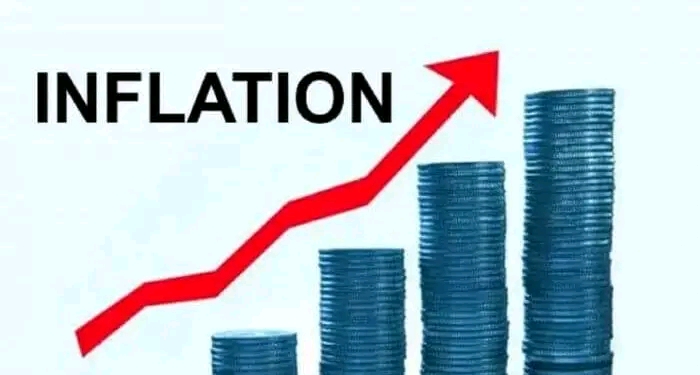Details as Nigeria’s Inflation Increases By 1.80% In February, Hits 31.70%
The National Bureau of Statistics (NBS) has released figures that paint a concerning picture of the nation’s economic climate. February 2024 witnessed a significant spike in the headline inflation rate, now standing at 31.70%.
This marks an uptick of 1.80% from the 29.90% recorded in January, signaling a troubling trend for the country’s economy and its citizens.
Delving into the specifics, the inflation rate in February 2024 not only increased by 1.80 percentage points from January but also surged by 9.79 percentage points compared to February 2023, which saw a rate of 21.91%. This year-over-year analysis underscores the escalating cost pressures faced by Nigerians, highlighting a substantial increase in the headline inflation rate over the past year.
On a more granular level, the month-on-month inflation rate for February 2024 was reported at 3.12%, a 0.48% increase from January’s rate of 2.64%. This detail indicates that the pace at which prices are rising is accelerating, affecting the average consumer’s purchasing power and overall cost of living.Furthermore, the average change in the Consumer Price Index (CPI) over the twelve months leading up to February 2024 was 26.18%, marking a significant rise of 6.31% from the 19.87% recorded in the same period the previous year. This statistic further illustrates the growing inflationary pressures within the Nigerian economy.
When examining urban versus rural inflation rates, the disparities become more pronounced. Urban areas experienced a staggering inflation rate of 33.66% in February 2024, which is 10.87 percentage points higher than the rate recorded in February 2023. Conversely, rural areas saw a year-on-year inflation rate of 29.99% in February, up by 8.89 percentage points from the previous year.

This report has only presented the obvious regarding our unfortunate plight as a country. A situation where the trends show that people’s purchasing power continues to decline means poverty.
Production facililty business strives on ECONOMY OF SCALE (EoS). EoS is about producing to sell in large volumes when the margin is very small. Not much was achieved in this respect between 2015 and now with respect to productivity and cost of production. In 2016 it was reported that government was not selling crude oil enough to support the economy because the buying price reduced to $30 per barrel and that our production costs were about that.
When the industrial facilities operate at high costs the economy is doomed because the prices of raw materials and sales are fixed by the International market.
I still remember my own letters to both Presidents Buhari and Tinubu on how to direct production facilities to reduce costs by changing MAINTENANCE PRACTICES. Our proposals were also sent to captains of industries but no one responds.
We are still ready and willing to demonstrate that wrong maintenance practices is a major key to the economic problems. It killed the NNPC refineries and left the country struggling till today. Exchange rate between the dollar and naira is the victim. It is responsible for high cost of cement which has resulted in negations to reduce price per bag. President Tinubu threatened to allow more producers. That is not the answer.
The problem is that the plants are designed to operate 24×365 hours per year. But more than 85% shutdown very often to do maintenance at the detriment of cost.
Successful economies suffered the same situation. But they rigguled out of it by embracing improvements in maintenance practices that continued to evolve. One example is that nuclear power plants run for 6 and more years without shutting down. Many refineries in the USA run for 10 years, too. Verify our case. The maintenance strategies in 85% of our facilities was only good in 1960. So, it is impossible to achieve different results by doing things in the same way over and over.
Innovative practices had been around in more than 5 decades.
Government must drive a change as a matter of policy and ensure compliance. Then and only then would the situation improve. Threatening to bring in more producers will not change cost because sales price is related to production cost.